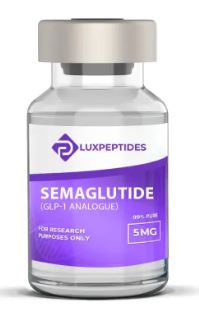Semaglutide vs. Other GLP-1 Analogs: A Comparative Analysis
Semaglutide glp-1 analogue 5mg, have revolutionized the treatment of type 2 diabetes and weight management. These medications mimic the action of the hormone GLP-1 (glucagon-like peptide-1), which plays a crucial role in regulating glucose metabolism. Among the various GLP-1 analogs available, semaglutide has gained significant attention for its efficacy and unique properties. In this article, we will explore how semaglutide compares to other GLP-1 analogs in terms of efficacy, dosing, safety, and clinical outcomes.
Efficacy:
Clinical trials have demonstrated the impressive efficacy of semaglutide in glycemic control and weight management. In a head-to-head trial comparing semaglutide with other Semaglutide GLP-1 Analogue 5mg, semaglutide showed superior reductions in HbA1c levels and fasting plasma glucose. Furthermore, semaglutide has also shown remarkable efficacy in reducing body weight, with higher weight loss observed compared to other GLP-1 analogs. These findings suggest that semaglutide may offer enhanced glycemic, and weight control benefits compared to its counterparts.
Safety:
The safety profiles of GLP-1 analogs, including Semaglutide Buy Online, are generally favorable. However, it is essential to consider potential adverse effects. Common side effects associated with semaglutide and other GLP-1 analogs include gastrointestinal symptoms such as nausea, vomiting, and diarrhea. These effects are usually mild to moderate and tend to improve over time. Severe adverse events are rare but can occur. Overall, the safety profiles of semaglutide and other GLP-1 analogs are comparable, with no significant differences in the incidence of adverse events observed in clinical trials.
Dosing:
Semaglutide is available in a once-weekly dosage form, which sets it apart from other GLP-1 analogs that require daily or twice-daily dosing. The convenience of weekly dosing improves medication adherence and patient satisfaction. It also reduces the burden of frequent injections, leading to improved treatment compliance.
Clinical Outcomes:
Studies have investigated the impact of semaglutide and other GLP-1 analogs on clinical outcomes beyond glycemic control and weight management. These outcomes include cardiovascular events, renal function, and long-term complications of diabetes. Although semaglutide has shown promising cardiovascular benefits in clinical trials, it is important to note that head-to-head comparative data with other GLP-1 analogs are limited. Further research is needed to establish any differences in clinical outcomes between semaglutide and its counterparts.
Cost Considerations:
The cost of GLP-1 analogs, including semaglutide, can be a significant factor in treatment decisions. Semaglutide Peptide is a newer medication, and its price may be higher compared to some other GLP-1 analogs. However, it is crucial to consider the overall value and benefits that semaglutide offers, such as its efficacy and once-weekly dosing, which may justify the cost for many patients.
In conclusion, semaglutide stands out among GLP-1 analogs due to its superior efficacy, once-weekly dosing, and potential cardiovascular benefits. It has demonstrated impressive results in glycemic control and weight management, and its safety profile is comparable to other GLP-1 analogs. However, more comparative studies are needed to fully understand the differences in clinical outcomes between semaglutide and other GLP-1 analogs. When considering treatment options, healthcare providers should carefully evaluate the individual patient's needs, preferences, and cost considerations to make informed decisions.
